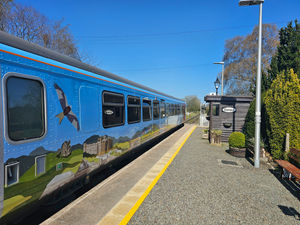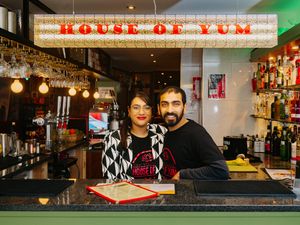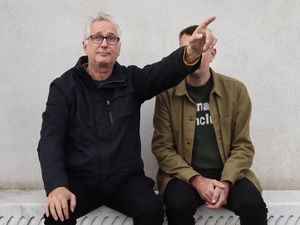After the nightclubs... comes a new dawn
As clubs struggle across the West Midlands and Shropshire, punters are seeking new ways to enjoy a night out.
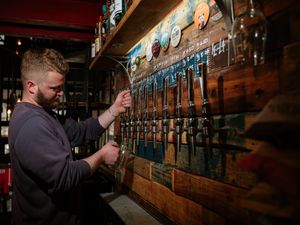
Cheap drinks, sticky dance floors and queueing outside in the rain to get in to your favourite club might well be things of the past.
Nightclubs in the West Midlands and Shropshire have been on the decrease over the last five years according to the latest Office for National Statistics figures.
Across England, the number of nightclubs has fallen by 16 per cent since 2013.
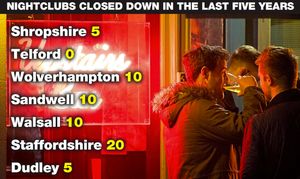
The data includes nightclubs, and any social and working men’s clubs that are licensed to sell alcohol.
But while nightclubs themselves might be on the decrease what is replacing them? Is the price of a pint putting off punters? Or are people looking for something slightly different from their night out now?
Finding a niche
Harry Wyatt, 29, runs House of Grain, a craft ale bar at the bottom of Wyle Cop in Shrewsbury.
Unlike a pub, The House of Grain runs a more cafe culture bar environment which might more commonly be found on the continent, and which provides an indication of how night life is changing. Drinks are brought to your table, and customers are trusted with a tab system as they enjoy their evening.
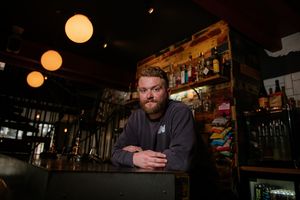
“The cafe culture came about because I am from a bar background,” says Harry. “I love table service and love not having to get up to get a drink. It’s just easier.
“I wanted a mixture between a bar and a pub really. Because you’re paying a bit more for craft beer the table service is part of the service as a whole.
“We have pints that cost £5 so you’ve got to make sure your service on point and that people are getting value.”
Harry has been working in bars and pubs since the age of 16 and has always been a big fan of craft ale.
He says the key to success is finding a niche and doing it well – and that is what customers still want from their night life.
The business is doing well, he says, despite the fact that craft ales themselves tend to be more expensive than a lot of other beer found at other venues.
“In the cities every other pub is a craft beer pub,” he said. “We were one of the first places here to do it. I think people are getting more choosy about what they eat and drink.
“It’s all about sustainability and locally sourced ingredients and getting away from this mass produced stuff. The food and drink industry really is going that way.
“You have to eke out your niche so customers know what they use your for and that’s how to survive and thrive.”
If the world of cheap and cheerful drinks in a sweaty club are no longer appealing to quality-conscious punters, then nightspots may find their problems have just begun.
Ashley Johnson, industry analyst at market research group IbisWorld, said: “Many consumers purchase cheap supermarket alcohol to drink before going out rather than buying more expensive drinks in clubs, constraining industry revenue.
“Efforts to revive alcohol sales by offering cut-price drinks have been unable to fully compensate for this fall.”
But Harry believes there is still a market for clubs – if they can find the right angle.
“The nightclubs that are suffering are the ones that haven’t got a niche,” he continues. “Are expectations changing or are people just wanting new experiences? I don’t know. I think you just need to be clear about what you do.”
A recent IbisWorld report highlights that licensing changes in 2005 have allowed pubs and bars to stay open later, taking nightclub customers.
Martin McTague, policy chairman of the Federation of Small Businesses, said: “A major issue for this industry are the sheer number of burdensome regulations that are adding huge costs to businesses.
“The night-time economy is worth billions to the UK, but firms are being faced with strict licensing laws, rising insurance costs, ever-increasing business rates on top of burgeoning employment costs and other liabilities.”
Still life in clubs?
But in Wolverhampton, The Dog and Doublet pub is now preparing to revert to being a nightclub, having most recently been a craft ale-focused pub.
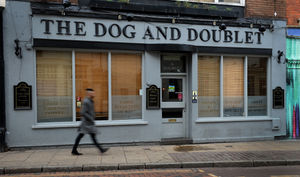
Its owner Sean Westwood had put the pub up for sale, but decided he could make a new success of it if he gave it a rebrand and went to more club opening hours.
“We are going for a more indie Haçienda-type vibe,” he says. “We are rebranding as Underdog.”
So while figures show that club’s are closing Sean says there is still a market for them, if the right niche is found.
“The real ale market isn’t there like it used to be five years ago,” he said. “When we started we bought craft ale and real ale to the city. The indie scene are still big drinkers. It’s better to be focussed on one thing.
“I don’t think people want to go to big super clubs and have terrible drinks. They want smaller bars and clubs that are bustling with good drinks.
“People want to be in different, weird and quirky places. It’s all about social media and Instagram. People want to put interesting pictures of interesting places up, and that’s what I’m thinking about underdog. It’ll be as Instagram-able as ever.
Giving people what they want
The Shrewsbury Coffeehouse is run by Olivia Gregory and business partner Anika Postings. By day it is a spot for coffee drinkers, or for those looking for a bit of lunch.
However, it has ventured into the night life economy playing host to gigs and live music and pop up restaurant evenings.
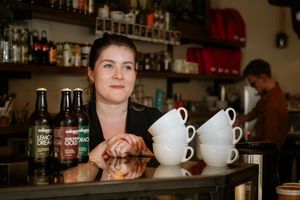
“We wanted to do something we would want to go to ourselves,” says Olivia, 26.
“We love gigs and going out for food. But we also like supporting other local businesses. We have done wine tasting with a local business and the pop up kitchens are with a local chef too. She sells out in hours.
“It really works for us. You have a lovely atmosphere and it feels like a different way to go out and eat and drink.”
She believes the social aspect of the coffee house is what is attracting its customers.
“The whole nightclub thing is not that sociable when you think about it,” she says. “You basically are just going out to get drunk. I think now people want to spend their money a bit more wisely and pay for more experiences than just blowing it.
“I know I’d rather go out for a bit of food or a few drinks at a bar.”

